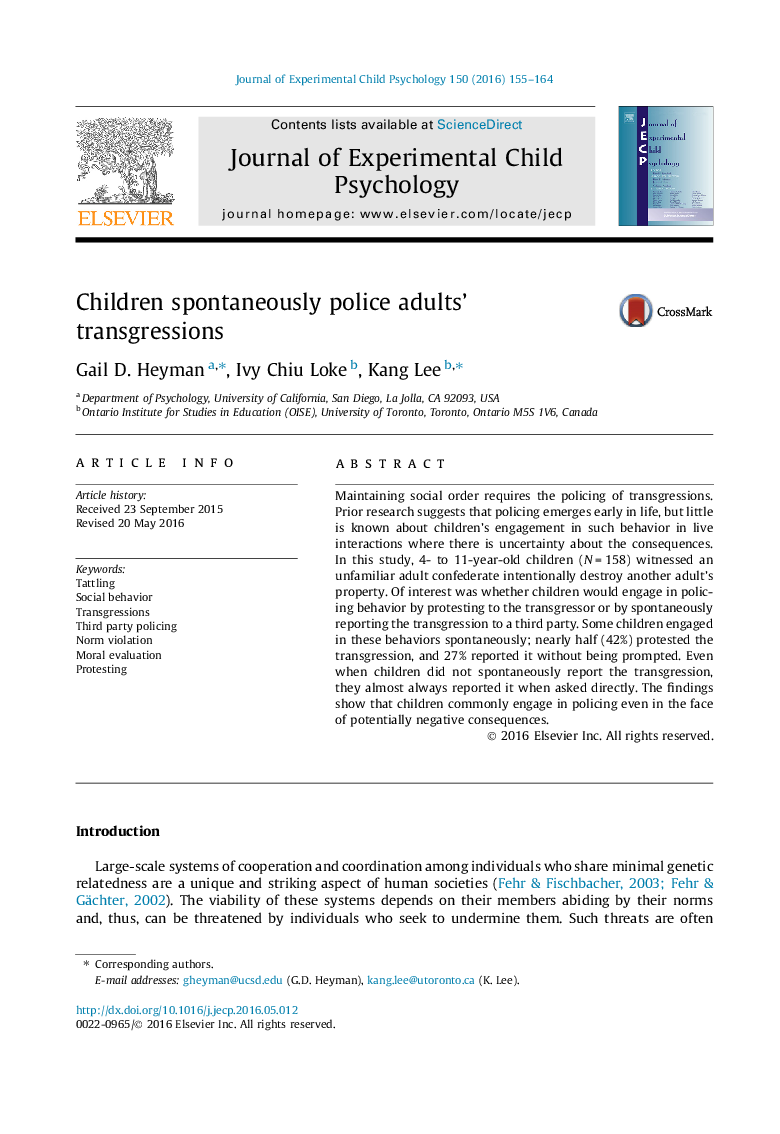| Article ID | Journal | Published Year | Pages | File Type |
|---|---|---|---|---|
| 7274510 | Journal of Experimental Child Psychology | 2016 | 10 Pages |
Abstract
Maintaining social order requires the policing of transgressions. Prior research suggests that policing emerges early in life, but little is known about children's engagement in such behavior in live interactions where there is uncertainty about the consequences. In this study, 4- to 11-year-old children (NÂ =Â 158) witnessed an unfamiliar adult confederate intentionally destroy another adult's property. Of interest was whether children would engage in policing behavior by protesting to the transgressor or by spontaneously reporting the transgression to a third party. Some children engaged in these behaviors spontaneously; nearly half (42%) protested the transgression, and 27% reported it without being prompted. Even when children did not spontaneously report the transgression, they almost always reported it when asked directly. The findings show that children commonly engage in policing even in the face of potentially negative consequences.
Related Topics
Social Sciences and Humanities
Psychology
Developmental and Educational Psychology
Authors
Gail D. Heyman, Ivy Chiu Loke, Kang Lee,
